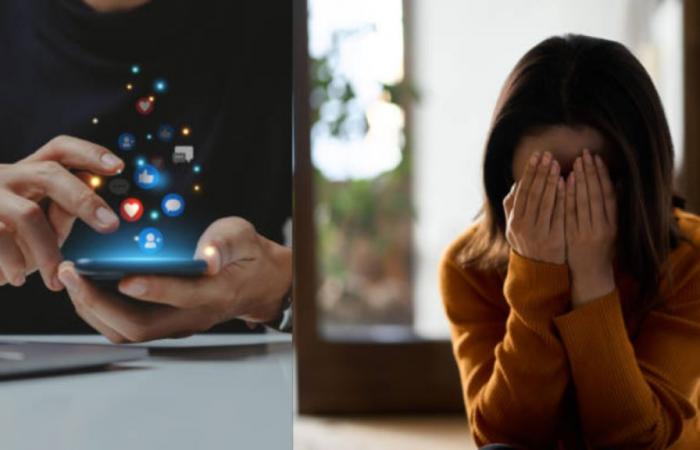Globalization has brought with it numerous important events: we are more connected in many ways, thanks to social networks and other advances. However, the avalanche of information can be overwhelming.
There is more data than we can process and it shows an abundance of happy lives that seem to have it all, presenting themselves as ideal models of fulfillment.
The idea of efficiency has spread beyond the workplace and now encompasses all of life. Even weekends must be efficient.
Children participate in a large number of extracurricular activities and there is always another one to discover, one that another child in the class already does and that seems necessary for their own.
The day becomes a daily marathon due to a syndrome that began to be talked about in 2004, became popular in 2010 and was incorporated into the dictionary in 2013. This is FOMO, acronym for ‘fear of missing out’which translates as the fear of missing out.
In that year, scientists at the University of Oxford defined it as “the widespread apprehension that others may be having rewarding experiences from which one is absent.”
It is a phenomenon characterized by the constant desire to stay connected with what others are doing, discovering new things and wanting to imitate them.
The experiences of others, which are not always real, generate in the observer a feeling of anxiety, restlessness and fear to miss a positive event or experience, coinciding with a feeling of dissatisfaction with their own personal life.
“The conceptualization that FOMO implies a negative effect due to unmet social needs is similar to theories about the negative emotional effects of social ostracism,” explains specialist Aditya Sharma, a neuroscientist in the Department of Neuroscience at the University of Pittsburgh. who has dedicated his last years to investigating this contemporary phenomenon.
“FOMO is a relatively new psychological fact. It may exist as an episodic feeling that occurs in the middle of a conversation, as a long-term disposition or mental state that leads the individual to perceive a deeper feeling of social inferiority, loneliness, or intense rage. “More than ever, people are exposed to many details about what happens to others and face continuous uncertainty about whether they are doing enough or if they are where they should be in terms of their lives.”
How do we feel like we are missing out on something good?
First, there is a perception that one is missing out, followed by compulsive behavior to maintain these social connections. The social aspect of FOMO could be thought of as a need to belong. and the formation of solid and stable interpersonal relationships.
On the other hand, this phenomenon is considered a type of problematic attachment to social networks and is associated with a variety of negative experiences and feelings in life, such as lack of sleep, reduced ability to live fully, emotional tension , the negative effects on physical well-being, anxiety and lack of emotional control.
The endless cycle: accessing the networks to calm anxiety
Exactly, social networks offer a compensatory way for anxious people to satisfy their social needs not covered in a different way to face-to-face interaction.
Its use is believed to facilitate communication for those with difficulties, by compensating for their lack of relationships with much less effort and instantly. However, this “social compensation” can be problematic when it reinforces the avoidance of personal contact, thus increasing social anxiety.
FOMO is also related to the problematic use of networks due to their easy access, allowing, especially adolescents, to interact at will and constantly seek personal validation and gratifying messages, which can distort your self-perception.
When is longing excessive?
The digital realm is beginning to be explored in scientific circles. Experts in neurology, neuroscience and mental health are beginning to publish the first studies on experiences that are recognized in oneself, in friends, colleagues or family, but that do not yet have a formal medical diagnosis to be prevented or treated.
The same thing happens if you have the need to constantly publish on social networks.
Photo:Sasha Steinbach. EFE
Less than a month ago, the Spanish Society of Psychiatry and Mental Health (SEPSM) released a report revealing that 69 percent of young people in that countrybetween 18 and 34 years old, admits to suffering from FOMO syndrome.
56 percent fear missing out on important events, news and updates if they are not connected to social media. Additionally, 69% feel they miss out on essential events if they don’t check their networks.
Likewise, a StrategyTravel survey found that 60% of young adults make purchases motivated by FOMO. The magazine ‘Estrategia’ reported that 59% of the parties and eventsand 29 percent of food viewing, are the leading causes of FOMO among millennials.
In this context, 73 percent of them have spent money they did not have to avoid feeling like they are missing out on something, according to a TD Ameritrade study.
“Humans want to feel included,” says the specialist, “we are gregarious, we are interested in belonging to a group. When that happens, in addition to belonging, there is an implication of approval from others and that makes us feel better about ourselves.” themselves. Do what others do, or what they say they do according to their social networkscan activate the reward system in our brain, even if an activity is not performed.”
Signs that you suffer from FOMO
When it is not possible to feel joy for others or, at least, indifference, and concern arises when seeing that others enjoy activities without us, or when due to work or family commitments we cannot participate in social plans, we must consider that This is a warning sign.
The same thing happens if you have the need to constantly publish on social networks everything you are doing, especially the positive things, avoiding showing failures for fear of feeling little important in the digital world.
Anything that makes a person feel left out can be a potential cause of FOMO. However, social media allows us to see what everyone is doing.
That wasn’t always the case: our coworkers had activities on the weekends, but if we were lucky we would find out about some on Monday when we got to the office. Now everything is there, from everyone, instantly.
Overexposure generates overexpectation. The offer is endless and that infinity is anguish if you don’t know how to handle it. When we see posts that make us happy on social media, dopamine increases in the brain, activating its reward system, which means it searches repeatedly.
What other risks are faced?
Spending more than two hours a day on social media showed a significantly increased risk of being suicidal. FOMO may mediate between narcissism and problematic social media use, suggesting that unmet social relationship needs cause high engagement in problematic social media use.
It has also been linked to negative alcohol-related consequences, either through increased consumption or disposal to engage in risky behavior.
Teens with FOMO are likely to experiment with drugs and alcohol if that is a condition of fitting in with their “friends” on social media.
In a Chinese study with university students, negative affect, which is a general dimension of subjective distress that includes a variety of aversive moods such as anger, contempt, disgust, guilt, fear and nervousnessis related to FOMO-mediated sleep deprivation.
An Israeli university study that measured nighttime smartphone use found that young people were at risk for reduced sleep quality and overall psychological health.
Survey of 101 teens linked worry before bed and FOMO with longer sleep onset latency and reduced duration of the dream. All this evidence is conclusive.
How to enjoy what you do without focusing on what you are missing?
First, it can be helpful to identify exactly what is causing FOMO, because each person is affected differently. It is key to understand and minimize triggers.
Restrict screen use, unfollow certain accounts, impose a connection break for a few days if possible. You should focus on self-control, rather than abstinence.
It is also important to change your focus: find what you like, what you enjoy, and focus on that moment, on the here and now of the experience. It is necessary to return to what gives one pleasure. Clear external influences and do not accumulate experiences, but enjoy. Maybe it would be good to start wondering.
Flavia Tomaello/ La Nación.
More news
*This content was made with the assistance of artificial intelligence, based on information from La Nación Argentina, and was reviewed by the journalist and an editor.






